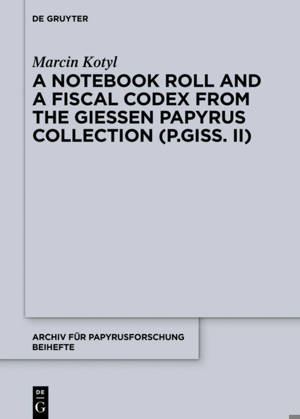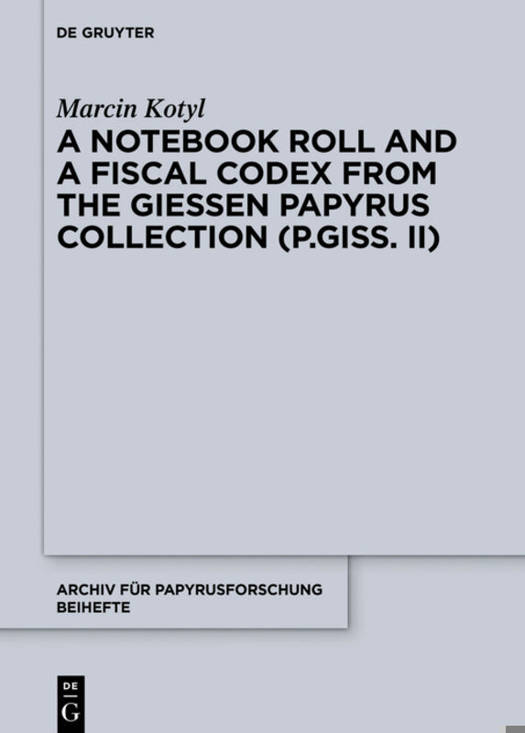
- Retrait gratuit dans votre magasin Club
- 7.000.000 titres dans notre catalogue
- Payer en toute sécurité
- Toujours un magasin près de chez vous
- Retrait gratuit dans votre magasin Club
- 7.000.000 titres dans notre catalogue
- Payer en toute sécurité
- Toujours un magasin près de chez vous
A Notebook Roll and a Fiscal Codex from the Giessen Papyrus Collection (P.Giss. II)
Marcin KotylDescription
The second volume of the Giessen Papyri (P.Giss. II) includes an edition of two previously unpublished Greek documents. The first one, numbered 127, is a notebook roll from Philadelphia dated to the last years of Vespasian's reign, containing nine documents concerning overdue rents for land in the ousiac parces; of particular interest is a draft of a complaint regarding peculation addressed to Ammonios, strategos of the Herakleidou meris. The second, numbered 128, is a fiscal codex from the Hermopolite nome, dated to the second half of the fourth century. This papyrus offers direct insight into many taxation issues, including the method of tax assessment based on the concept of kephale, which is still poorly understood; it also provides information regarding key fiscal changes that occurred after the reforms of Diocletian. The editions of these papyri will help scholars to reconstruct specific details of everyday life in Roman and Late Roman Egypt in areas including taxation, monetary systems, land tenure, onomastics, prosopography, administration, and social and economic situations.
Spécifications
Parties prenantes
- Auteur(s) :
- Editeur:
Contenu
- Nombre de pages :
- 204
- Langue:
- Anglais
- Collection :
- Tome:
- n° 39
Caractéristiques
- EAN:
- 9783110662504
- Date de parution :
- 20-07-20
- Format:
- Livre relié
- Format numérique:
- Genaaid
- Dimensions :
- 170 mm x 244 mm
- Poids :
- 526 g







